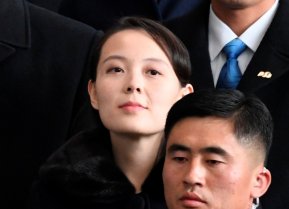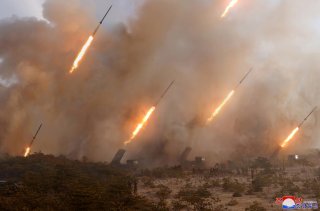Slow Escalation: How North Korea Will Challenge America for the Rest of 2020
Kim has learned that he can use provocations to induce other countries to make concessions, concessions he needs. Thus, the North Korean pattern of provocations will likely continue in 2020 through a slow escalation designed to put pressure on the United States and its allies. But Kim has also learned to stay below potential U.S. escalation redlines. How can America break this pattern?
Kim Jong-un’s reappearance on May 1 (Korea time) raises questions about the course of U.S./North Korea relationships in the coming year. What should we expect? What can we learn from the past?
In early-March 2018, North Korean leader Kim Jong-un volunteered to negotiate the dismantlement of his nuclear program with President Trump. While Kim has taken some confidence-building measures since that time, North Korea has yet to eliminate even one nuclear weapon or stop the production of nuclear weapons at any of the North’s nuclear weapons facilities. Indeed, several experts have argued that the North has been steadily increasing the number of its nuclear weapons and their explosive power while expanding the North’s nuclear weapon production capabilities—exactly the opposite of what Kim promised. Even at his Hanoi summit with President Trump, Kim offered “…to surrender only one or two of five key nuclear sites in North Korea,” and refused to include others.
This North Korean behavior is notable because, in April 2018, Kim Jong-un signed the Panmunjom Declaration with South Korean President Moon, Article 1.1 of which says that South and North Korea will fully implement “all existing agreements and declarations adopted between the two sides thus far.” One of those declarations was the 1992 Joint Declaration of the Denuclearization of the Korean Peninsula, which says that “South and North Korea shall not test, manufacture, produce, receive, possess, store, deploy or use nuclear weapons. South and North Korea shall use nuclear energy solely for peaceful purposes. South and North Korea shall not possess nuclear reprocessing and uranium enrichment facilities.” And yet the North has been doing most of these things.
Thus Kim not only failed to deliver on his promised nuclear program dismantlement, but he has also been actively violating terms of The Panmunjon Declaration. Despite Kim’s behavior, some might still believe that if the U.S. offers North Korea significantly more concessions, Kim will eventually meet his commitments. It would seem difficult to maintain that belief given that in April 2019, Kim told his Supreme People’s assembly that, “the United States will not be able to move us one iota nor get what it wants at all, even if it sits with us a hundred times, a thousand times.”
It’s possible that this track record of denuclearization failures could be raised as an issue in the 2020 U.S. presidential elections. But at the same time, Kim Jong-un is being seriously hurt by the economic sanctions on North Korea. Kim’s failure to achieve sanctions relief is reportedly increasing the unhappiness of the North Korean elites. It appears to also be reducing Kim’s funds for military acquisitions and elite benefits. Kim’s own financial desperation is demonstrated by the North’s forced sales of bonds internally to raise hard currency, which is really a governmental confiscation of the money held by others.
Kim has learned that he can use provocations to induce other countries to make concessions, concessions he needs. Thus, the North Korean pattern of provocations will likely continue in 2020 through a slow escalation designed to put pressure on the United States and its allies. But Kim has also learned to stay below potential U.S. escalation redlines. Since 2019, Kim has been slowly adding what the U.S. perceives as low-level pressure with theater missile tests that have primarily threatened US regional allies. And the U.S. dismissal of these threats has also served Kim’s objective of working toward a decoupling of the U.S./ROK alliance.
The United States can consider how best to break this pattern, perhaps by using information operations to impose penalties on Kim for his provocations, violations of agreements, and other bad behavior. If so, then such penalties would need to be mixed with offers of benefits to North Korea contingent upon good behavior.
Bruce W. Bennett is a senior defense analyst at the nonprofit, nonpartisan RAND Corporation.
Image: Reuters via KCNA.


